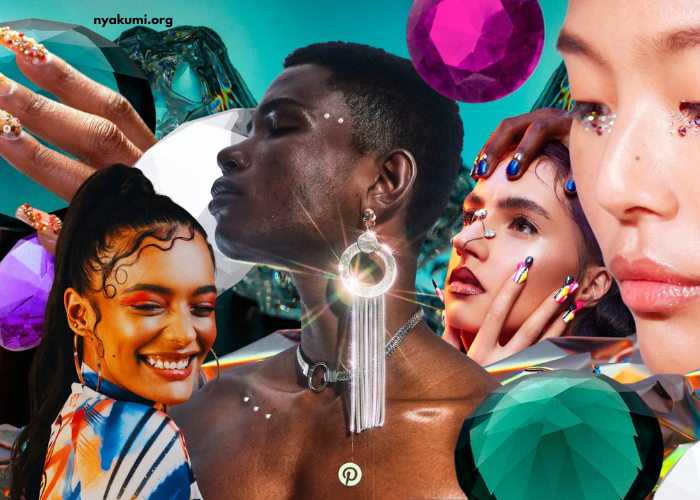In today’s rapidly evolving world, where technology, sustainability, and changing cultural dynamics intersect, innovative lifestyle trends have emerged, offering fresh perspectives and a glimpse into the future of living. From wellness and home automation to eco-conscious living and personalized experiences, these trends are revolutionizing the way we live, work, and interact with the world around us. Whether you’re a tech enthusiast, an eco-warrior, or someone simply looking to enhance your quality of life, these trends are designed to align with your evolving needs and desires. In this article, we will explore some of the most innovative lifestyle trends you need to embrace now to stay ahead of the curve.
Smart Homes and IoT Integration
As technology continues to advance, smart homes have become an essential feature in modern living. The integration of Internet of Things (IoT) devices into homes enables people to control various aspects of their living space through their smartphones or voice assistants. Whether it’s adjusting the lighting, controlling the thermostat, or monitoring security systems, IoT allows homeowners to manage and optimize their home environment effortlessly.
The trend of smart homes is not limited to convenience alone. With advances in artificial intelligence (AI), IoT-enabled homes can also learn your preferences, adjusting conditions to enhance comfort. Moreover, these homes promote energy efficiency by monitoring usage patterns and automating systems to reduce waste. For instance, smart thermostats adjust the heating or cooling based on your presence or absence, while smart lighting systems dim when natural light is abundant, reducing electricity consumption.
Sustainable Living: Eco-Conscious Trends
Sustainability is no longer just a buzzword; it’s a lifestyle movement that is becoming more mainstream. As concerns about climate change, resource depletion, and environmental damage rise, many individuals are turning to eco-conscious living practices. Sustainable living trends span various aspects of life, from home design and food consumption to travel and fashion.
One of the key drivers of this trend is the increasing demand for sustainable materials in construction and interior design. Recycled materials, energy-efficient appliances, and solar-powered systems are gaining traction as part of the eco-friendly home movement. Green building certifications such as LEED (Leadership in Energy and Environmental Design) are now seen as essential markers of responsible construction.
Additionally, the shift towards plant-based diets and sustainable agriculture practices is on the rise. From reducing carbon footprints to conserving water resources, people are becoming more mindful of what they consume and its impact on the planet. Whether through farm-to-table restaurants, vertical gardens, or plant-based food products, sustainability is becoming a crucial element of our daily routines.
Wellness-Focused Living: A Holistic Approach to Health
Wellness has become a dominant focus of modern living, and the shift toward a more health-conscious lifestyle is fueling an array of innovative trends. More than just a buzzword, wellness is a holistic approach to physical, mental, and emotional well-being. This trend reflects an increasing desire to live a balanced, healthy life that nurtures both body and mind.
Mindfulness and meditation practices have gained widespread popularity, and many people are now incorporating these techniques into their daily routines. Guided meditation apps, yoga sessions, and mindful eating habits are helping people alleviate stress, improve focus, and enhance their overall mental health. Wellness retreats, offering holistic experiences that combine fitness, relaxation, and self-reflection, are becoming increasingly popular as a way to disconnect and recharge.
The rise of fitness technology is another significant aspect of wellness-focused living. Wearable devices such as fitness trackers and smartwatches provide real-time insights into your health, from tracking physical activity to monitoring heart rate and sleep patterns. These devices enable users to set goals, measure progress, and stay motivated to maintain a healthy lifestyle.
Personalized Experiences with Artificial Intelligence
Personalization is one of the most powerful trends in shaping modern lifestyles, and artificial intelligence (AI) is leading the charge. From personalized shopping experiences to tailored travel itineraries, AI is making it possible to provide unique experiences that cater to individual preferences and needs.
AI-powered recommendation systems are transforming how we shop and consume content. E-commerce platforms use machine learning algorithms to suggest products based on past behavior, while streaming services like Netflix and Spotify curate content tailored to your tastes. In the travel industry, AI can create personalized itineraries based on your interests, helping you discover destinations and activities that match your style.
Moreover, in healthcare, AI is playing a vital role in providing personalized medical advice. Virtual health assistants, using AI-driven algorithms, can offer tailored advice based on your medical history, lifestyle, and symptoms, making healthcare more accessible and efficient.
5. Minimalist Living: Simplifying Your Space and Life
Minimalism continues to be a popular lifestyle trend, promoting the idea that less is more. The minimalist movement emphasizes simplicity and functionality, encouraging individuals to declutter their homes and lives. In an age of consumerism, many are seeking a more intentional way of living, focusing on experiences rather than material possessions.
This trend goes beyond home decor. Minimalism promotes conscious consumption, where individuals make more thoughtful decisions about what they buy, how much they own, and the impact of those possessions on their well-being. By embracing a minimalist approach, individuals are encouraged to curate their environments to reflect their values, focusing on what truly brings them joy and peace of mind.
Minimalist living also ties into sustainability, as it often encourages people to reduce waste, recycle, and repurpose items. This trend aligns perfectly with eco-conscious lifestyles, promoting a more intentional approach to consumption and resource use.
Digital Nomadism: The Future of Work
The rise of remote work and the digital economy has given birth to the trend of digital nomadism, where individuals use technology to work from anywhere in the world. With the flexibility to work remotely, many professionals are choosing to travel while continuing their careers. Digital nomadism has become a way of life for those who seek adventure, work-life balance, and the freedom to explore new locations.
Co-working spaces and digital nomad communities have popped up around the world, providing support for this growing trend. These spaces offer everything from high-speed internet and meeting rooms to networking opportunities, making it easier for digital nomads to collaborate, connect, and thrive while on the move.
This trend is reshaping the way we view work and leisure, allowing individuals to blend the two and live life on their own terms. As more companies embrace flexible work arrangements, digital nomadism will continue to grow in popularity, offering individuals the chance to work from exotic destinations or even embrace a nomadic lifestyle full-time.
Electric and Autonomous Vehicles: Transforming Transportation
Transportation is another sector that is undergoing significant innovation, with electric vehicles (EVs) and autonomous cars leading the way. The shift towards electric vehicles is driven by a desire to reduce carbon emissions, improve air quality, and create a more sustainable future. Governments around the world are offering incentives for consumers to purchase electric cars, while automakers are expanding their electric vehicle offerings.
Autonomous vehicles, which use AI and advanced sensors to drive without human intervention, are also revolutionizing how we think about transportation. While fully autonomous cars are not yet widespread, the technology is progressing rapidly, with companies like Tesla, Waymo, and others leading the charge. These vehicles promise to reduce accidents, ease traffic congestion, and provide greater accessibility for people with disabilities.
The combination of electric and autonomous vehicles has the potential to reshape urban infrastructure, reduce reliance on fossil fuels, and create more sustainable, efficient transportation systems.8.
Augmented and Virtual Reality: A New Dimension of Experience
Augmented reality (AR) and virtual reality (VR) are transforming how we interact with the world, offering immersive experiences that were once the stuff of science fiction. These technologies are not just limited to gaming and entertainment—they’re extending into various industries, from education and healthcare to retail and real estate.
In retail, AR allows customers to visualize how products will look in their homes before making a purchase, enhancing the shopping experience. In education, VR is providing immersive learning environments, enabling students to explore historical events or complex scientific concepts in a more engaging way. In healthcare, VR is being used for therapy and pain management, helping patients manage conditions like anxiety, PTSD, or chronic pain.
The potential applications of AR and VR are vast, and as technology continues to advance, these tools will continue to shape how we interact with both the digital and physical worlds.
Plant-Based and Lab-Grown Foods: The Future of Nutrition
As the demand for sustainable, ethical, and health-conscious eating habits grows, plant-based and lab-grown foods have gained significant traction. Plant-based diets are being embraced not only for their environmental benefits but also for their positive impact on health. People are becoming more aware of the ethical implications of animal farming, leading to an increase in the consumption of plant-based alternatives like Beyond Meat, Impossible Foods, and oat milk.
Lab-grown meats are also on the horizon, offering a more sustainable and humane alternative to traditional meat production. These lab-grown products are produced by cultivating animal cells in a controlled environment, reducing the need for livestock farming. This method of food production promises to address environmental concerns, such as land use and greenhouse gas emissions, while providing a viable alternative to traditional meat consumption.
Conclusion
Innovative lifestyle trends are shaping the future of how we live, work, and interact with the world. From smart homes and sustainable living practices to wellness-focused habits and AI-powered personalization, these trends offer exciting new ways to enhance our quality of life. As technology continues to evolve and societal values shift, embracing these trends will not only keep you ahead of the curve but also allow you to contribute to a more sustainable, mindful, and connected future. Whether you’re interested in eco-conscious living, cutting-edge technology, or a holistic approach to health, these lifestyle trends provide something for everyone. It’s time to embrace innovation and make





